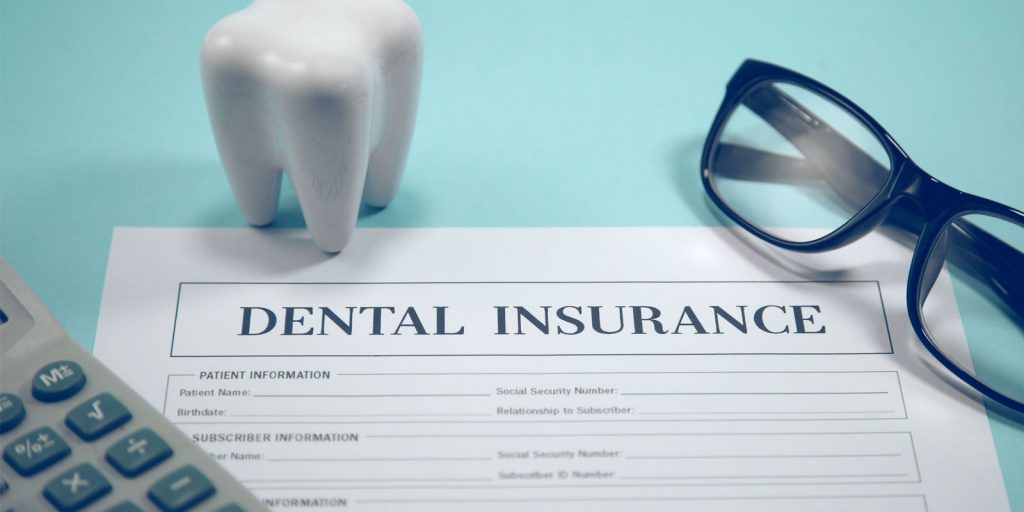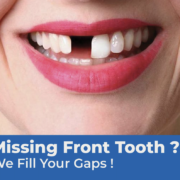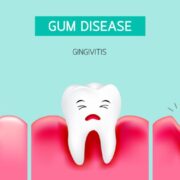Dr. Chirag Chamria, a prominent dentist at Royal Dental Clinics, here with another piece on his informative blog. In this article, we’ll explore the often discussed question of whether or not dental insurance is worthwhile for individuals and families. As dental care is an integral part of overall health, it’s crucial to understand the benefits and limitations of dental insurance plans before making a decision. In this article, let us explore the often discussed question of whether or not dental care or oral health covered in insurance is worthwhile.
Understanding Dental Insurance
Dental insurance is a form of coverage specifically designed to help individuals and families manage the costs associated with dental care. It functions similarly to health insurance, but focuses solely on dental procedures and treatments. Their plans vary in terms of coverage, costs, and limitations, making it essential to understand how they work before deciding if they are worth it for you.
Types of Dental Insurance
Indemnity plans, also known as fee-for-service plans, offer the most flexibility. With these plans, you can choose any dentist and receive reimbursement for a portion of the fees incurred. However, you may be required to pay the full amount upfront and then file a claim for reimbursement.
Managed care plans, on the other hand, involve a network of dentists who have agreed to provide services at a predetermined rate. There are two common types of managed care plans: dental health maintenance organizations (DHMOs) and preferred provider organizations (PPOs). DHMOs require you to choose a primary care dentist and obtain referrals for specialist visits, while PPOs offer more flexibility in choosing dentists but provide higher coverage when visiting in-network providers.

Coverage and Benefits
Preventive care: This includes routine check-ups, cleanings, and X-rays. Most of these plans fully cover preventive services to encourage regular oral care.
Basic procedures: Fillings, extractions, and root canals fall under this category. Insurance plans usually cover a percentage (often 70-80%) of the costs for basic procedures, and you’re responsible for the remaining portion.
Major treatments: More extensive procedures like crowns, bridges, and dentures fall into this category. They typically covers a smaller percentage (e.g., 50%) for major treatments, with the policyholder responsible for the rest.
Deductibles, Co-payments, and Annual Maximums
Deductibles: This is the amount you must pay out-of-pocket before your insurance coverage kicks in. For example, if your plan has a $100 deductible and you incur $500 in dental expenses, you’ll pay the first $100, and the insurance will cover the rest based on the plan’s coverage percentage.
Co-payments: Co-payments are the portion of the dental expenses you’re responsible for after meeting the deductible. For instance, if your plan covers 80% of a filling procedure, you would pay the remaining 20%.
Annual maximums: Dental insurance plans often impose a cap on the amount they will pay for covered services within a year. Once you reach the annual maximum, you’ll be responsible for all dental expenses until the next coverage period.
Evaluating the Worth of Dental Insurance
Frequency of dental visits: If you require regular dental care or have ongoing dental issues, having insurance can provide financial relief, especially for preventive services that are often fully covered.
Cost-benefit analysis: Calculate the total cost of premiums, deductibles, co-payments, and any out-of-pocket expenses you may have throughout the year. Compare this to the estimated cost of your dental treatments without insurance. If the potential savings outweigh the costs, it may be worth it.

Family needs: If you have a family with multiple members requiring dental care, insurance can help manage the overall costs. Consider the specific dental needs of each family member and evaluate if the coverage provided aligns with those needs.
Alternative options: Explore alternative options like discount dental plans or setting up a Health Savings Account (HSA) or Flexible Spending Account (FSA) for dental expenses. These alternatives may offer cost savings for individuals with minimal dental needs or who prefer more flexibility.
Cost Analysis: Premiums vs Pocket Expense
When considering the worth of it, it’s crucial to conduct a cost analysis comparing the premiums you’ll pay versus the potential out-of-pocket expenses you may incur. Its plans typically require monthly or annual premiums, which vary depending on factors such as coverage level, location, and the insurance provider.
On one hand, paying premiums provides you with the peace of mind that a portion of your dental expenses will be covered. This is particularly beneficial for individuals and families who require frequent dental care, such as those with pre-existing conditions or ongoing dental issues. With regular check-ups, cleanings, and preventive treatments fully or partially covered, dental insurance can help offset the costs of these routine services and ensure early detection of any potential oral health issues.
On the other hand, it’s essential to consider the potential out-of-pocket expenses associated with dental insurance. Most plans include deductibles and co-payments that you’ll need to pay when receiving dental care. Deductibles are the amount you must pay before your insurance coverage kicks in, while co-payments refer to the percentage or fixed amount you’ll be responsible for after meeting the deductible. These out-of-pocket costs can vary depending on the specific procedures and coverage percentages outlined in your insurance plan.
Benefits of Dental Insurance
Preventive Care Coverage: Dental insurance covers preventative care. Insurance often covers periodic check-ups, cleanings, and X-rays. These preventative practices are vital to oral health, avoiding dental diseases, and early detection. Dental insurance supports frequent dental appointments and makes preventative care inexpensive and accessible.
Financial Security for Unexpected Dental Expenses: Unexpected dental emergencies may be pricey. Dental insurance protects against these unforeseen costs. Insurance may considerably minimise the cost burden of emergency dental procedures, enabling patients to seek care without hesitation.
Coverage for Basic and Major Procedures: Dental insurance covers essential dental procedures. Deductibles and co-payments cover fillings, extractions, and root canals. Insurance often covers crowns, bridges, and dentures. Dental insurance covers expensive dental procedures.
Focus on Oral Health and Overall Well-being: Dental insurance improves dental and general health. Insurance supports preventative dental checkups, which are crucial for optimum oral health. Poor oral health has been related to systemic diseases including heart disease and diabetes. Dental insurance helps people prioritize oral health and avoid dental disorders that might affect their overall health.
Limitations of Dental Insurance
While dental insurance offers several benefits, it also comes with certain limitations that are important to consider. Understanding these limitations can help individuals make informed decisions about whether dental insurance is truly worth it for their specific needs. Let’s explore some common limitations of dental insurance:
Waiting Periods
Many of them have waiting periods for certain services, particularly for major procedures. This means that policyholders must wait for a specified period of time after enrolling in the plan before they can receive coverage for specific treatments. Waiting periods can range from a few months to a year or more, depending on the insurance provider and the procedure. This limitation can be challenging for individuals who require immediate dental care or who need timely treatment for existing dental issues.

Annual Maximums
They often impose an annual maximum, which is the maximum amount that the insurance will pay for covered services within a policy year. Once the annual maximum is reached, the policyholder is responsible for all dental expenses for the remainder of the year. The annual maximum can vary significantly between insurance plans, typically ranging from $1,000 to $3,000 or more. For individuals who require extensive dental work or have ongoing dental needs, reaching the annual maximum can limit the financial benefit of dental insurance.
Coverage Limitations
They may have coverage limitations and exclusions for certain procedures or treatments. Cosmetic procedures, such as teeth whitening or veneers, are often excluded from coverage as they are considered elective and not necessary for oral health. Orthodontic treatments for adults, including braces or aligners, may also have limited coverage or be excluded altogether. It’s important to carefully review the coverage details of a it to understand which procedures are covered and which are not.
Deductibles and Co-payments
It typically include deductibles and co-payments, which require the policyholder to pay a portion of the dental expenses out of pocket. Deductibles are the predetermined amount that the policyholder must pay before the insurance coverage starts. Co-payments are the fixed amount or percentage of the treatment cost that the policyholder is responsible for. These cost-sharing requirements can add up, particularly for more expensive procedures, and can significantly impact the out-of-pocket expenses for individuals.
Exclusions for Pre-existing Conditions
It may have exclusions or limitations for pre-existing dental conditions. Pre-existing conditions refer to dental issues that existed before obtaining the insurance coverage. Depending on the insurance plan, coverage for pre-existing conditions may be limited or excluded entirely for a specified period of time. This limitation can be challenging for individuals who require immediate treatment for pre-existing dental issues.
Importance of Regular Dental Care
- Regular dental care allows for early detection and prevention of dental problems.
- Dental check-ups include screenings for oral cancer, increasing the chances of early detection and successful treatment.
- Professional dental cleanings help maintain optimal oral hygiene by removing plaque and tartar buildup.
- Regular dental visits help manage and treat gum disease, preventing further complications.
- Dental examinations identify and treat dental conditions such as tooth decay, cavities, and cracked teeth.
- Dental professionals provide personalized oral health education, including guidance on proper oral hygiene practices and dietary choices.
- Good dental health is linked to overall well-being and can reduce the risk of systemic health issues.
- Scheduling routine dental visits contributes to a healthier and more beautiful smile.
Conclusion
In conclusion, the value of dental insurance ultimately depends on individual circumstances and dental needs. For individuals requiring frequent dental care, comprehensive insurance plans may provide peace of mind and financial security. However, for those with minimal dental needs or who are comfortable with alternative options, the costs associated with insurance may outweigh the benefits. Regardless of the chosen path, the key is to prioritize regular dental care to ensure a healthy smile. Remember, the team at Royal Dental Clinics, led by Dr. Chirag Chamria, is always ready to provide expert guidance and personalized dental solutions tailored to your unique needs.
© All rights reserved by Royal Dental Implants Pvt Ltd
Issued in public interest






